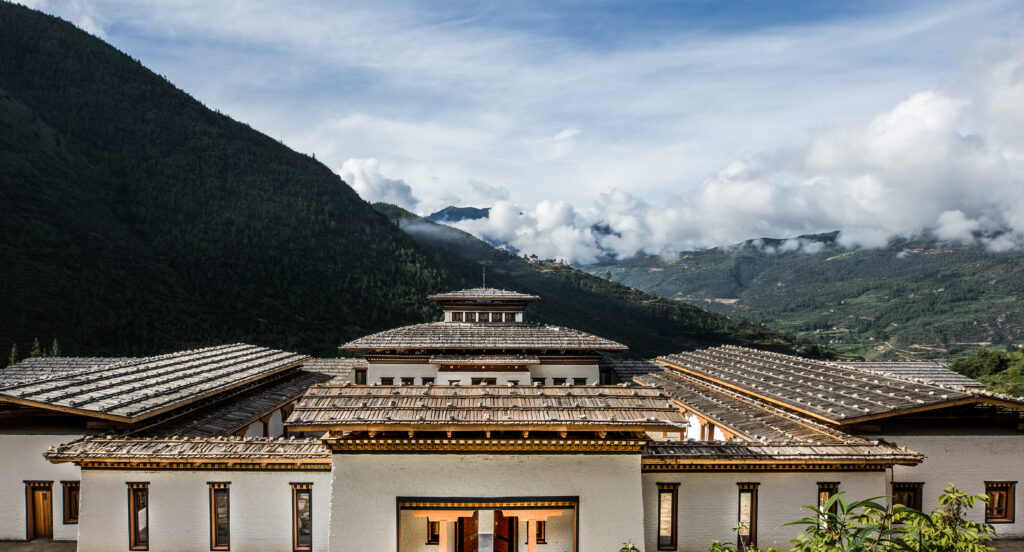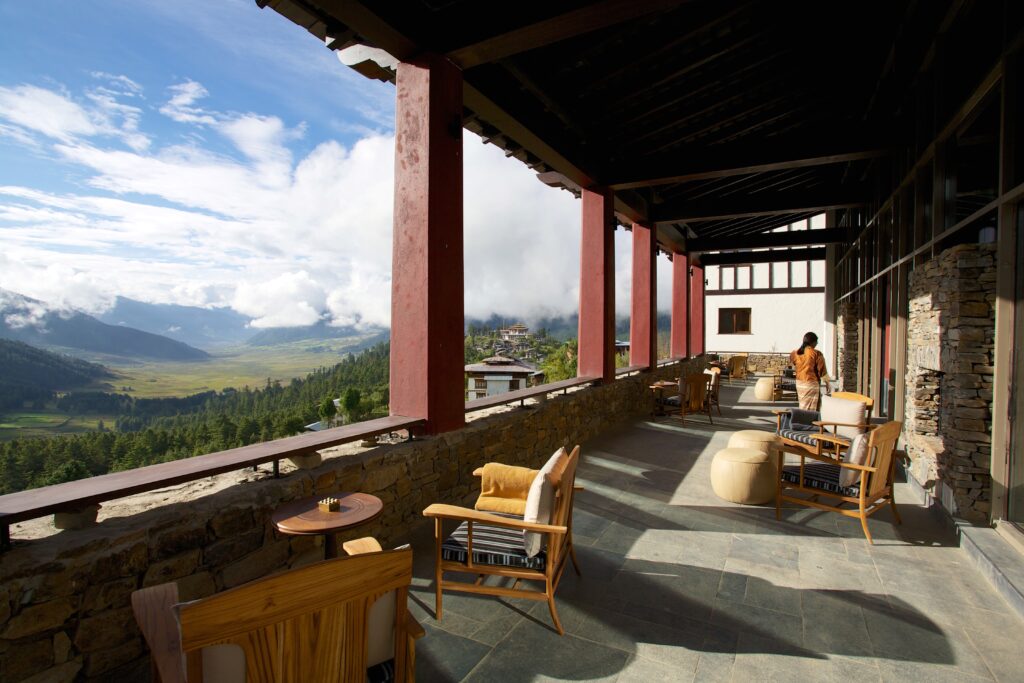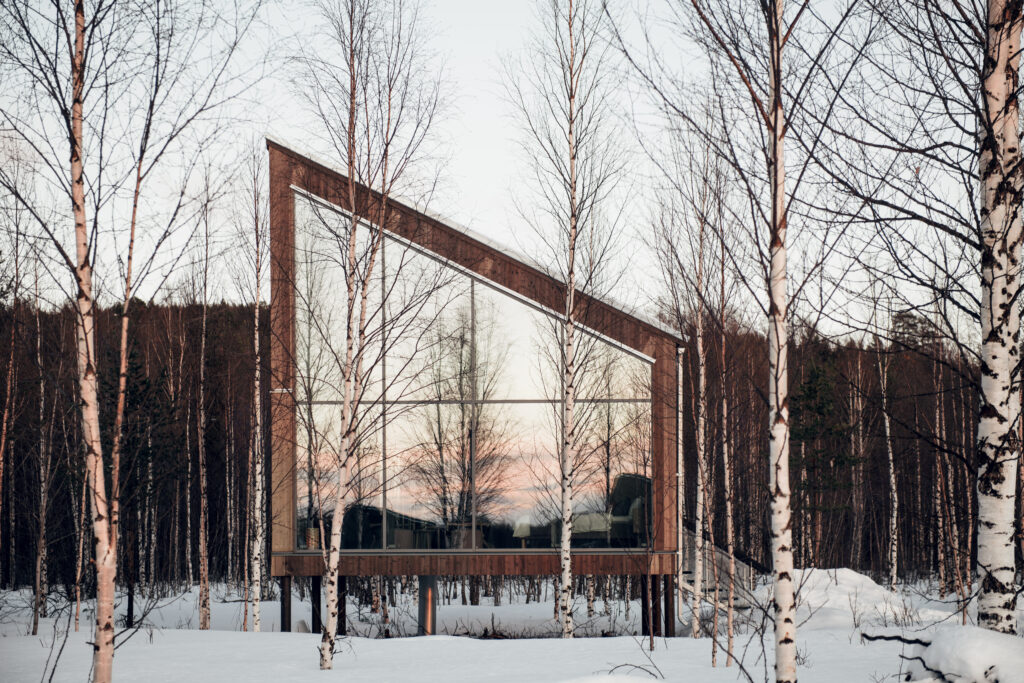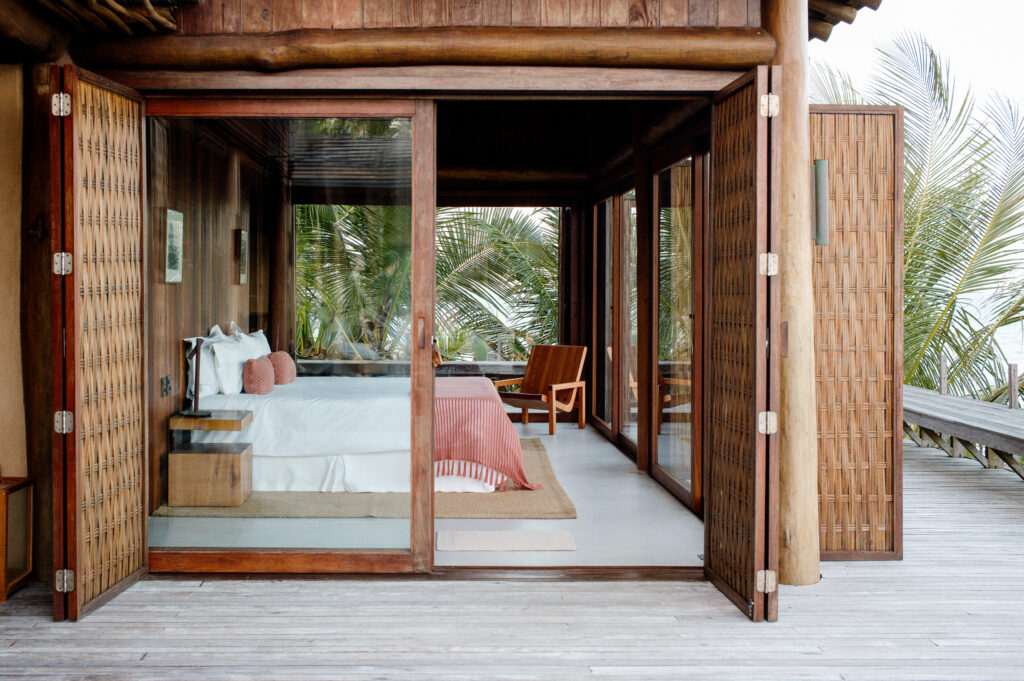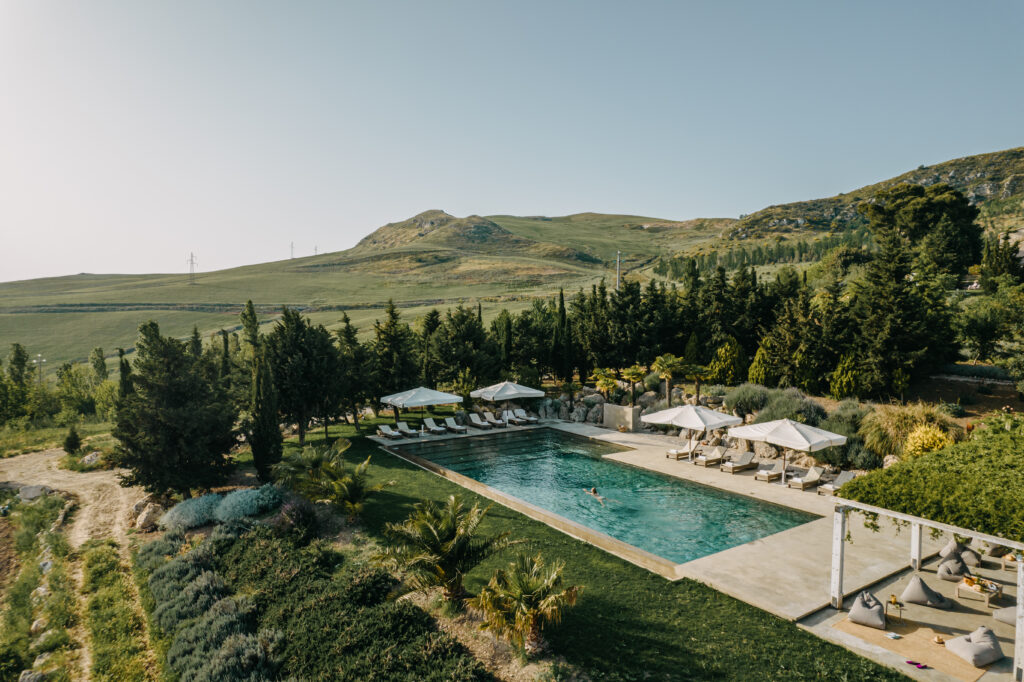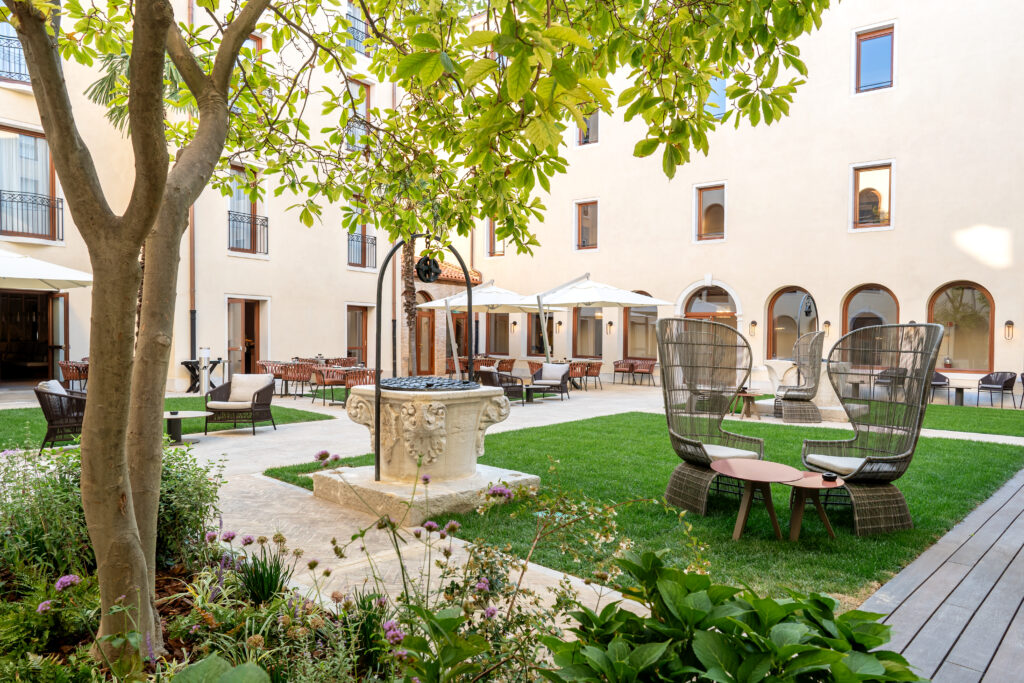A video venture from the Himalayas to the Arctic Circle, capturing pioneering members of our Considerate Collection
Originally launched in 2021 to help travellers narrow the search for greener getaways, the Considerate Collection celebrates the environmentally-led efforts made by our actively sustainable luxury hotels and has since doubled in members — continuing to inspire positive impact with every stay. Over the last 10 months, we visited some of our most innovative properties and sat down with the Considerate minds who are thinking outside the box on eco travel.
Watch the SLH Considerate Collection film below…
Handpicked in line with the UN’s Sustainability Development Goals (SDGs) as well as Global Sustainable Tourism Council (GSTC) across three key pillars, all Considerate Collection hotels are community minded, cultural custodians, and environmentally conscious. Many of these hotels are locally owned and family-run, fostering a deep rooted, personal connection to the people who make each place special.
Immersing guests in local culture through an array of authentic activities is integral to our hotel experience, whether it’s gathering herbs from a rural farmhouse garden for a traditional cooking class, or sitting around a campfire with reindeer herders listening to ancient folk tales. And of course, eco-credentials count — from conserving resources and reducing pollution to promoting biodiversity. Ultimately though, sustainable travel is about so much more than ‘being green’, it’s in every meaningful interaction, the memories created, customs shared, and the lasting changes made along each journey.
Louk Lennaerts, Bhutan Spirit Sanctuary
Shaba, Bhutan
“How do you define magic?” asks Louk Lennaerts, founder of Bhutan Spirit Sanctuary in the mystical Neyphu Valley. “Magic is in the air” in the last remaining Himalayan kingdom, with its dense forests, soaring mountains, and sacred temples. The world’s first carbon-negative country has long been leading the way when it comes to ‘high value, low volume’ tourism, as well as maintaining its self-proclaimed Gross National Happiness.
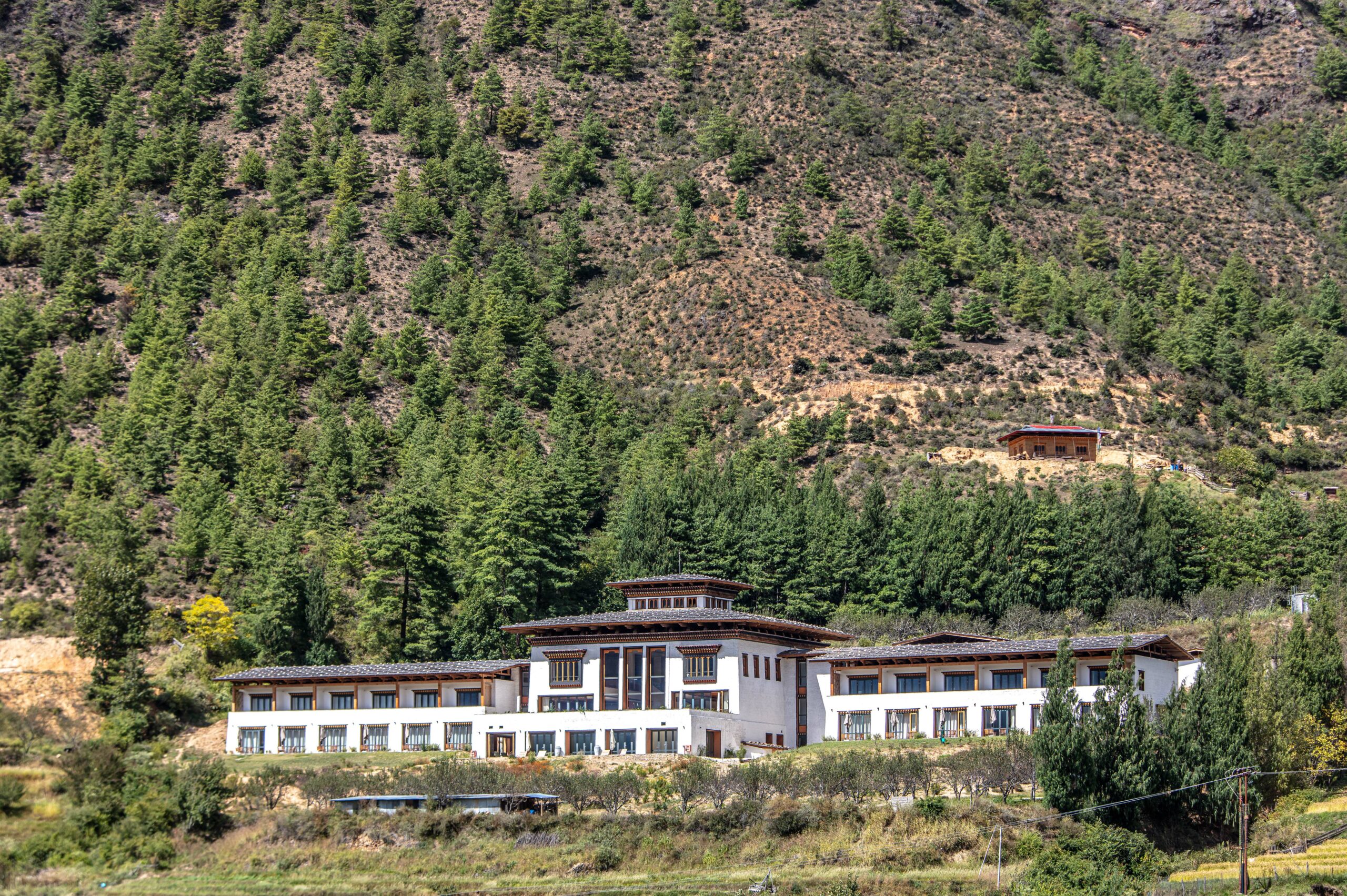
Inspired by traditional dzong architecture, Bhutan Spirit Sanctuary is modelled on the country’s mountain fortresses, and closely follows The Restful Mind philosophy based on the teachings of His Eminence Gyalwa Dokhampa. Encouraging guests to “listen to themselves”, the Sanctuary’s bespoke wellbeing programme was created by in-house traditional medicine doctors. Lennaerts hopes that visitors will achieve “inner sustainability” in some way — whether through healing herbal rituals, hot stone baths, high-altitude hikes, or sharing a meal with local farming families.
Omar Win & Brett Melzer, Gangtey Lodge
Phobjikha Valley, Bhutan
For the down-to-earth owners of Gangtey Lodge, a farmhouse-inspired outpost in a valley that’s home to the threatened black-necked crane, the Bhutanese experience is “about slowing down and being present”. Guests are invited to become part of a remote community — where refreshingly, nothing has been created for tourists — while learning about locals’ day-to-day lives.
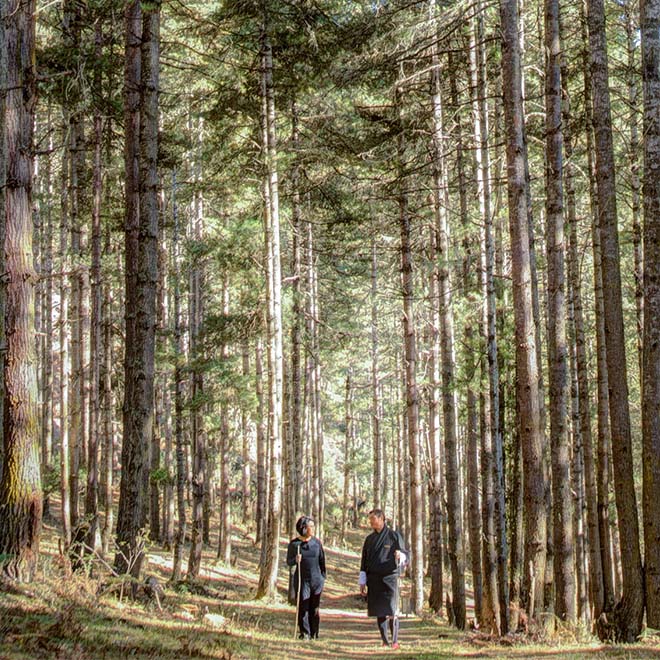
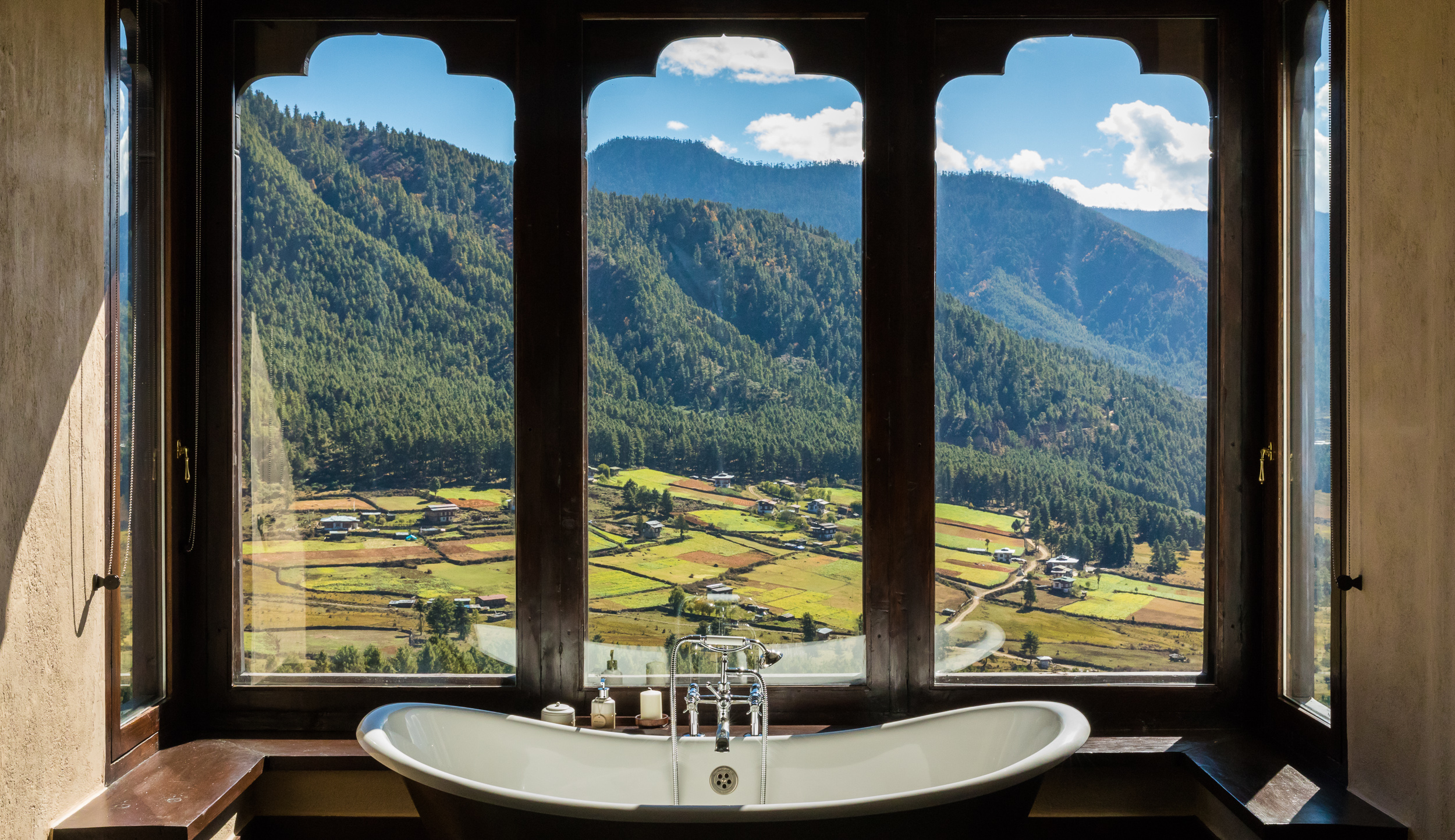
This could be through blessing and breakfast ceremonies at the nearby monastery, meditation sessions with the monks, butter lamp rituals and prayer flag hoisting behind the local Shedra, and making butter and cheese with the village’s dairy farmers. “Our guests want to have a trip where they can actually make a contribution”, says Omar Win, who, together with husband Brett Melzer, set out to create a retreat that allowed travellers to break their itinerary, to pause and properly understand life in a traditional farming community in rural Bhutan.
Maarten Raes, Arctic Bath
Harads, Sweden
“It all started with us just wanting to do something cool”, admits Maarten Raes, one of the local co-owners of Arctic Bath. Drawing inspiration from the surrounding forest, the sustainably constructed, glass-fronted lodges hover above land and water beneath the Northern Lights in one of Europe’s last true wilderness destinations. Very cool, in every sense of the word.
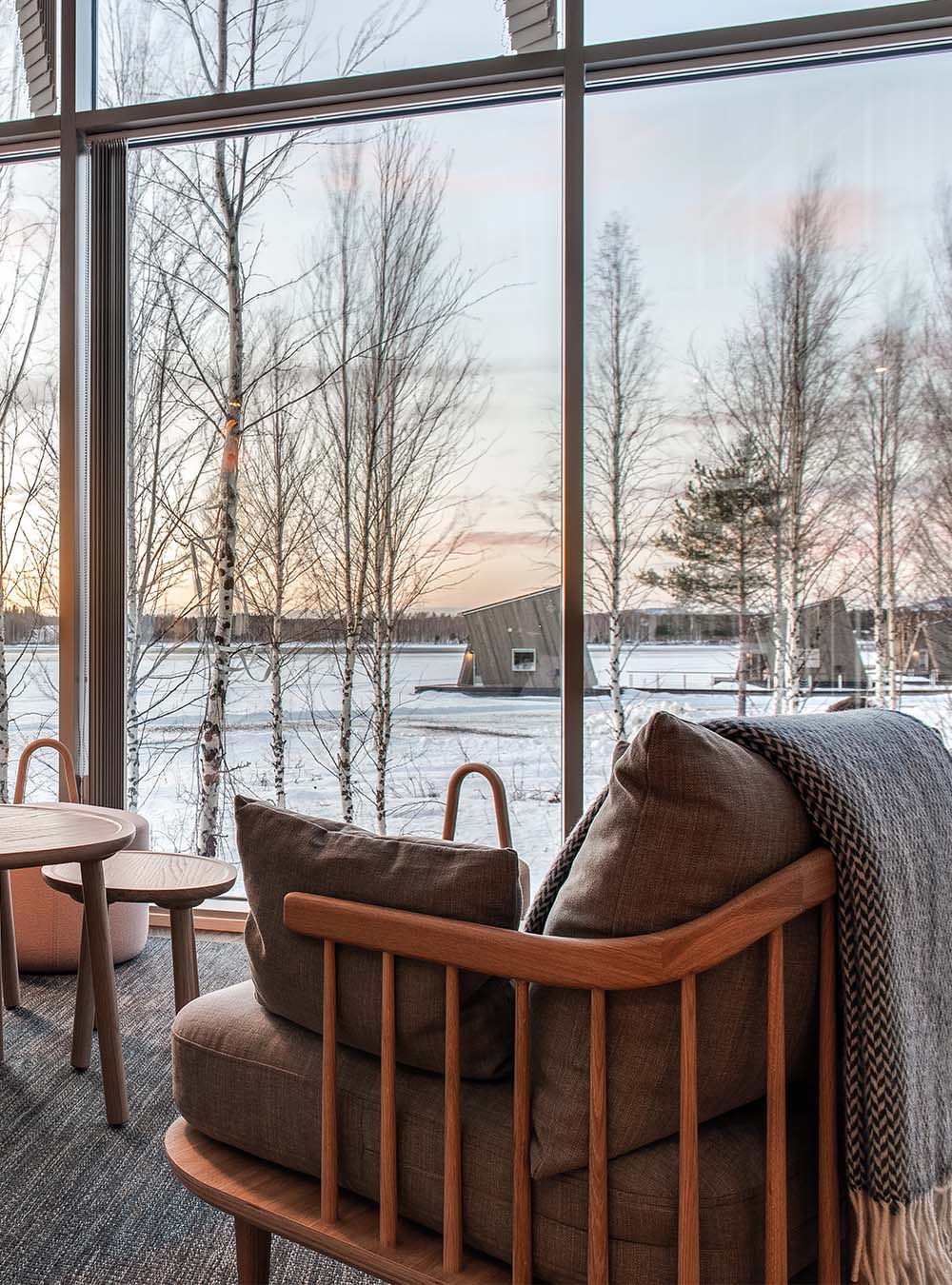
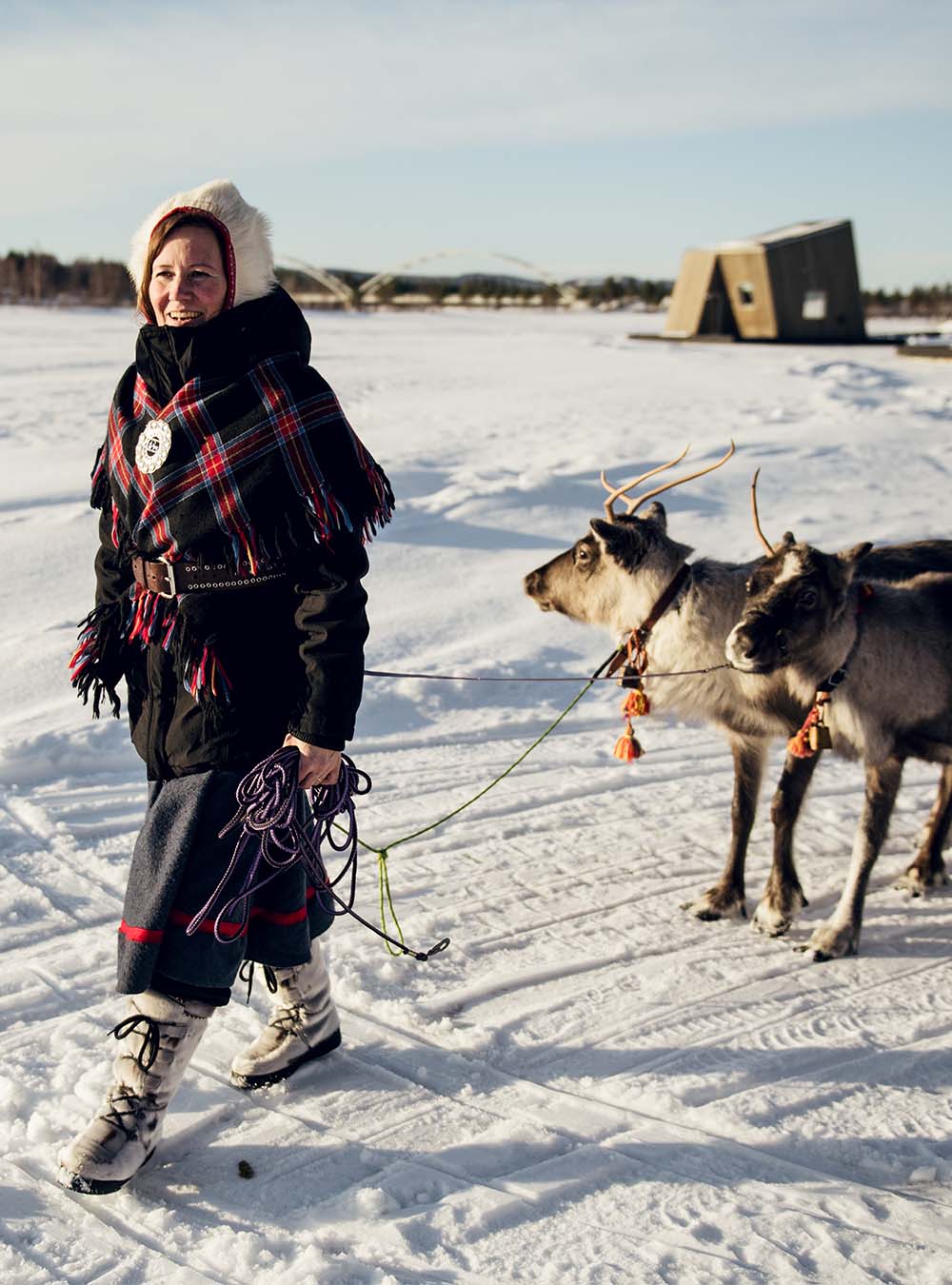
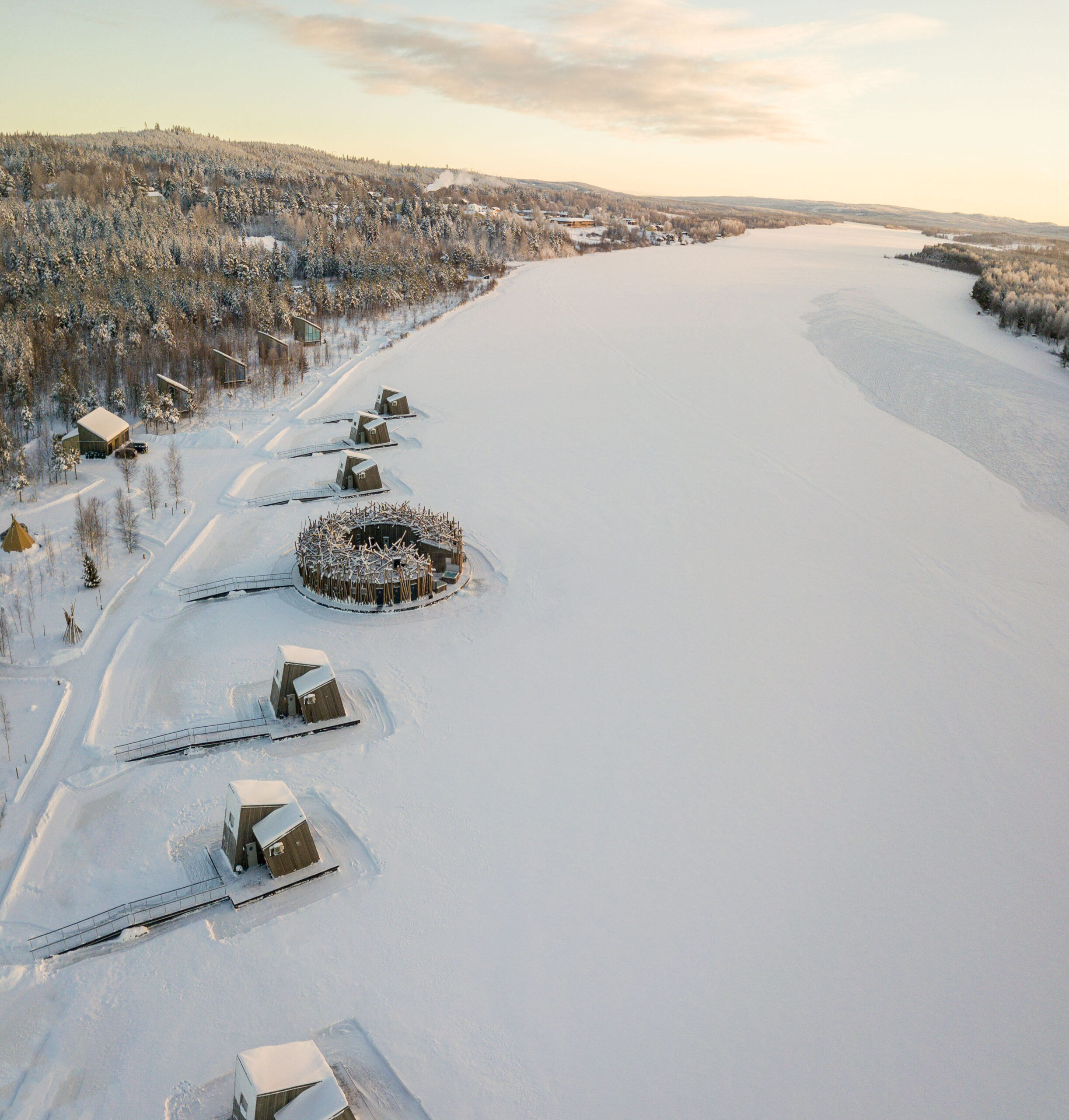
Running on 100% renewable energy, natural fireplaces filled with recycled pellets can be found in the cosily kitted out cabins and saunas, while locally made kick sleds, snowshoes and hiking sticks are available for guests to explore the Swedish Lapland surrounds in an eco-friendlier way. “You could be sitting in the hot tub and see a moose walking across the ice,” or join the moose whisperer on a wildlife safari in the snow, snacking on lingonberries and freshly caught Arctic Char. “Our chef sometimes spends the whole day foraging in the forest,” continues Raes, highlighting the hotel’s Nordic menu inspired by the region’s closely guarded secrets and old family recipes. Natural ingredients also supply the floating spa and ice bath, which is fed directly by the Lule River.
Juliana & Daniel Ghiotto, Barracuda Hotel & Villas
Itacaré, Brazil
Giving back to the rainforest and people of Itacaré is front of mind for Juliana and Daniel Ghiotto, the Brazilian couple behind Barracuda Hotel & Villas on Bahia’s balmy shoreline. Their vision was “to create the feeling that these houses came from the earth,” constructing Atlantic Forest-wrapped villas from sustainably sourced natural materials and curating the interiors using handcrafted furniture by local artisans.
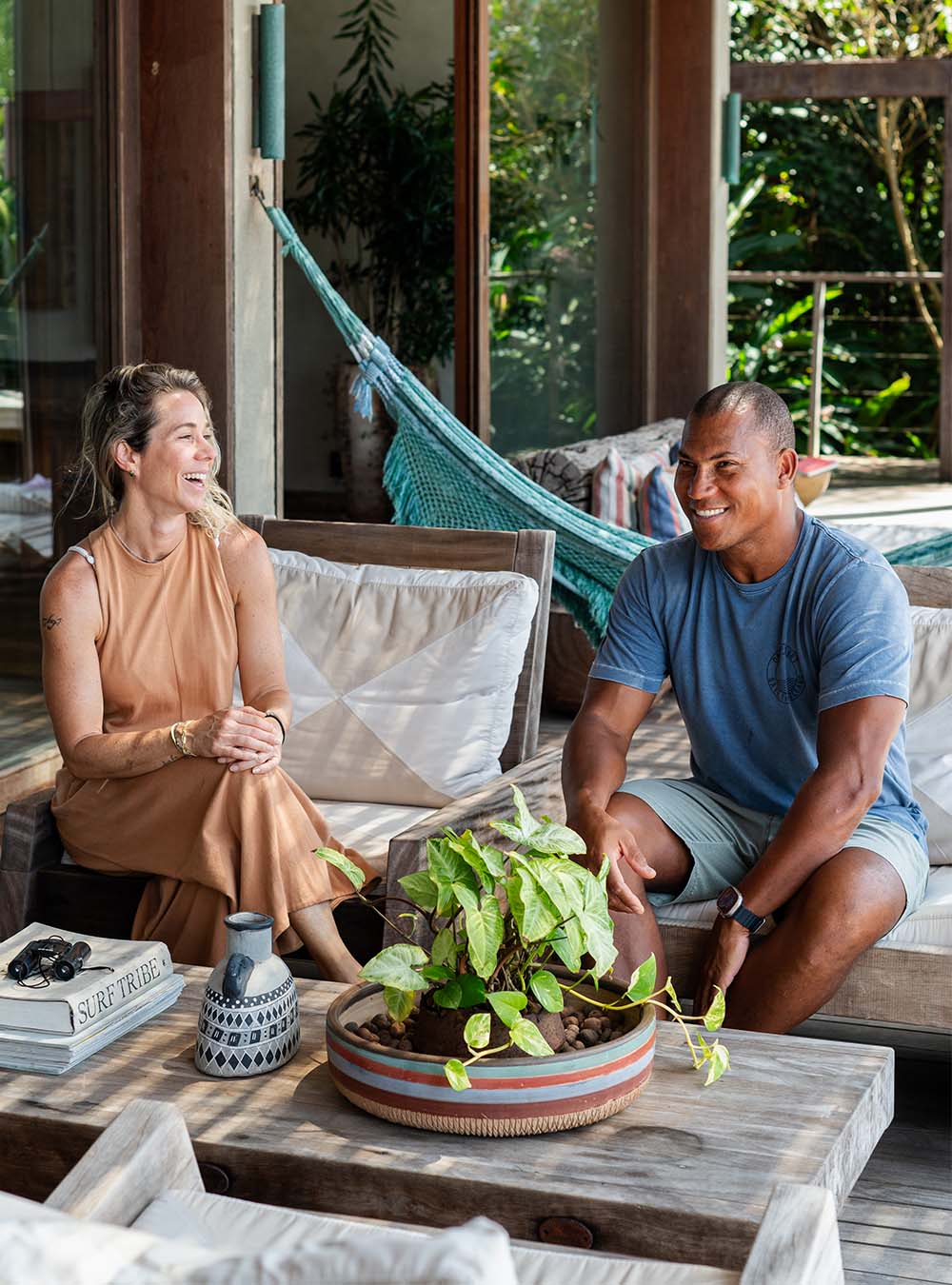
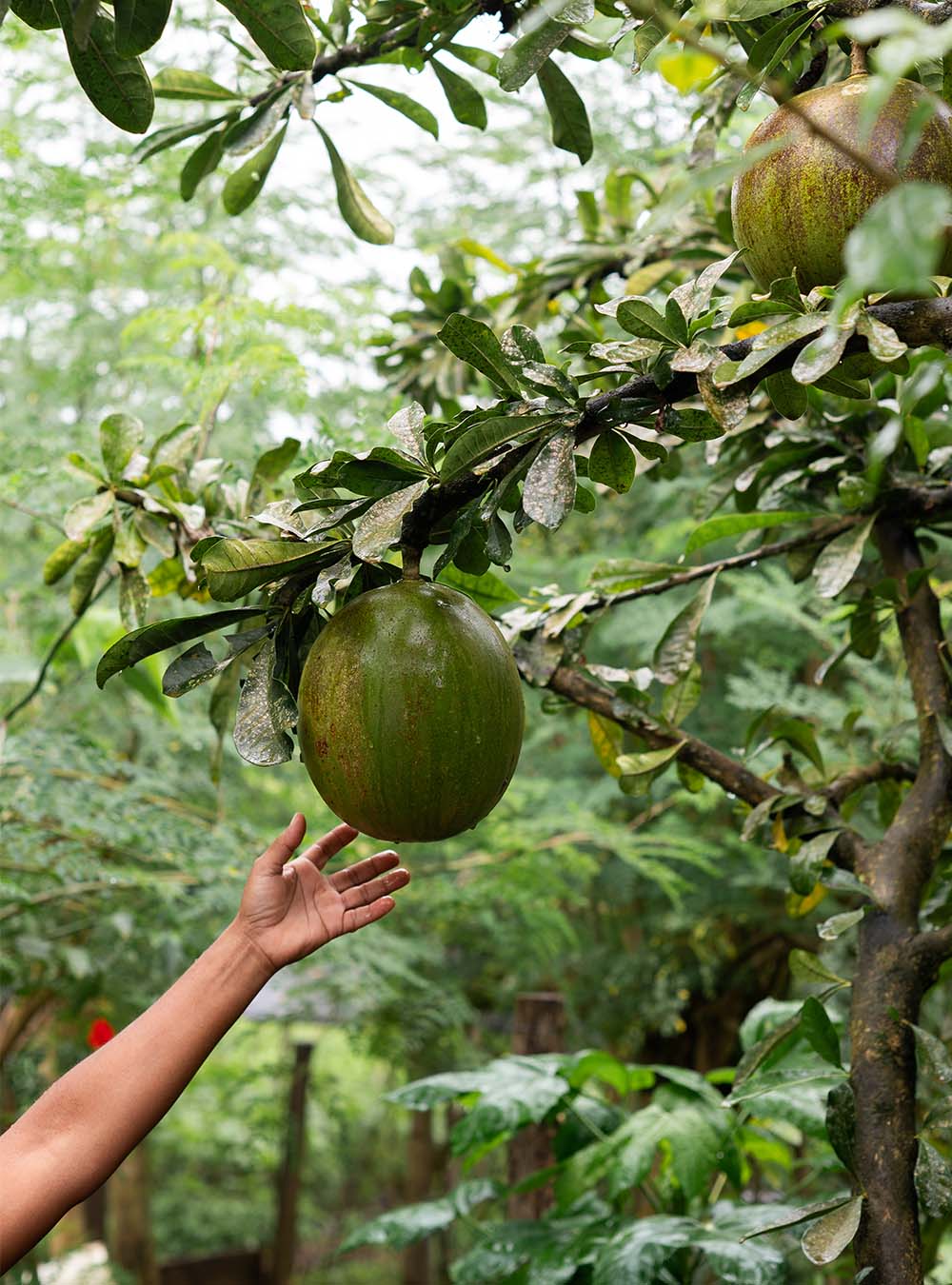
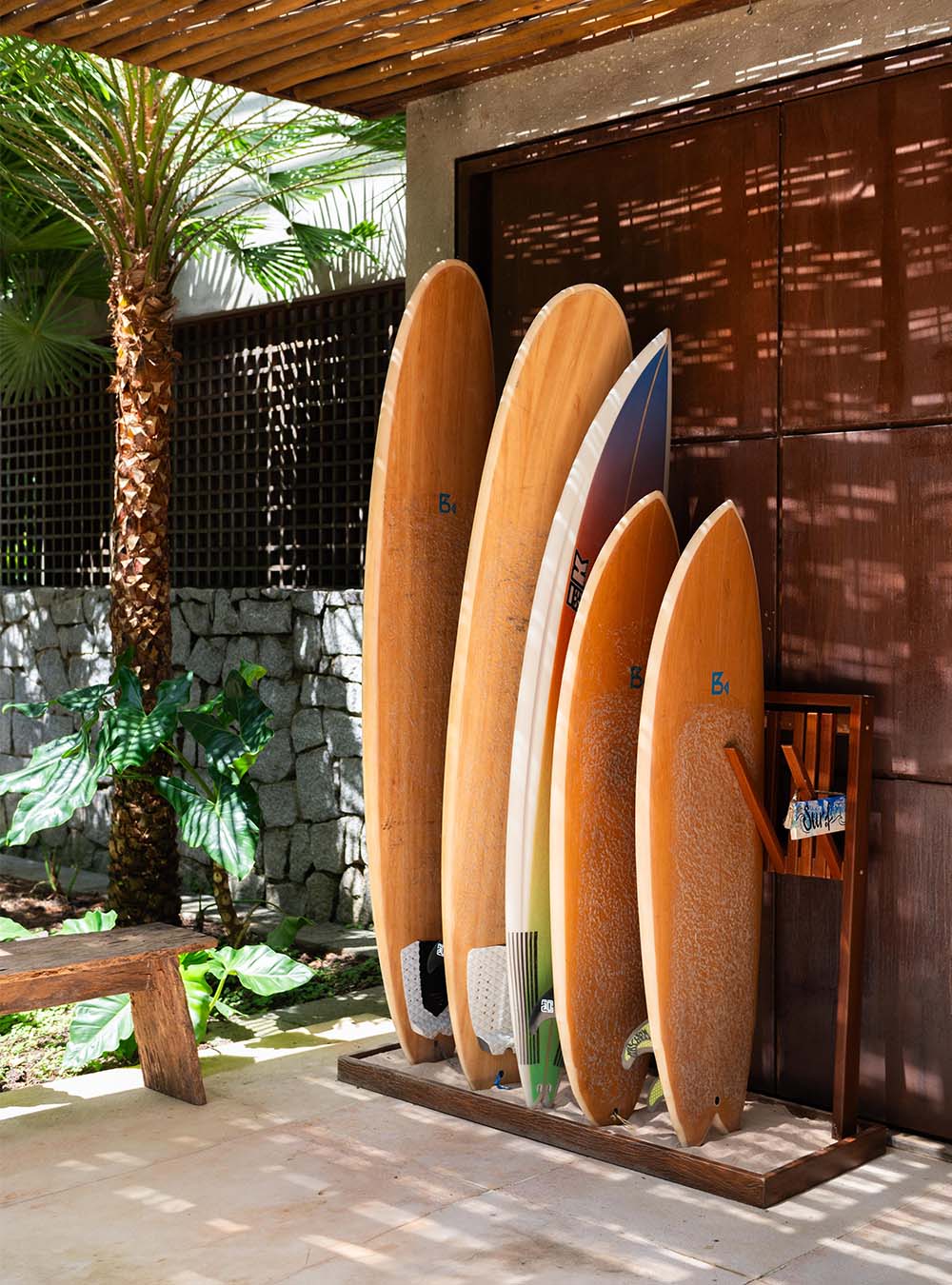
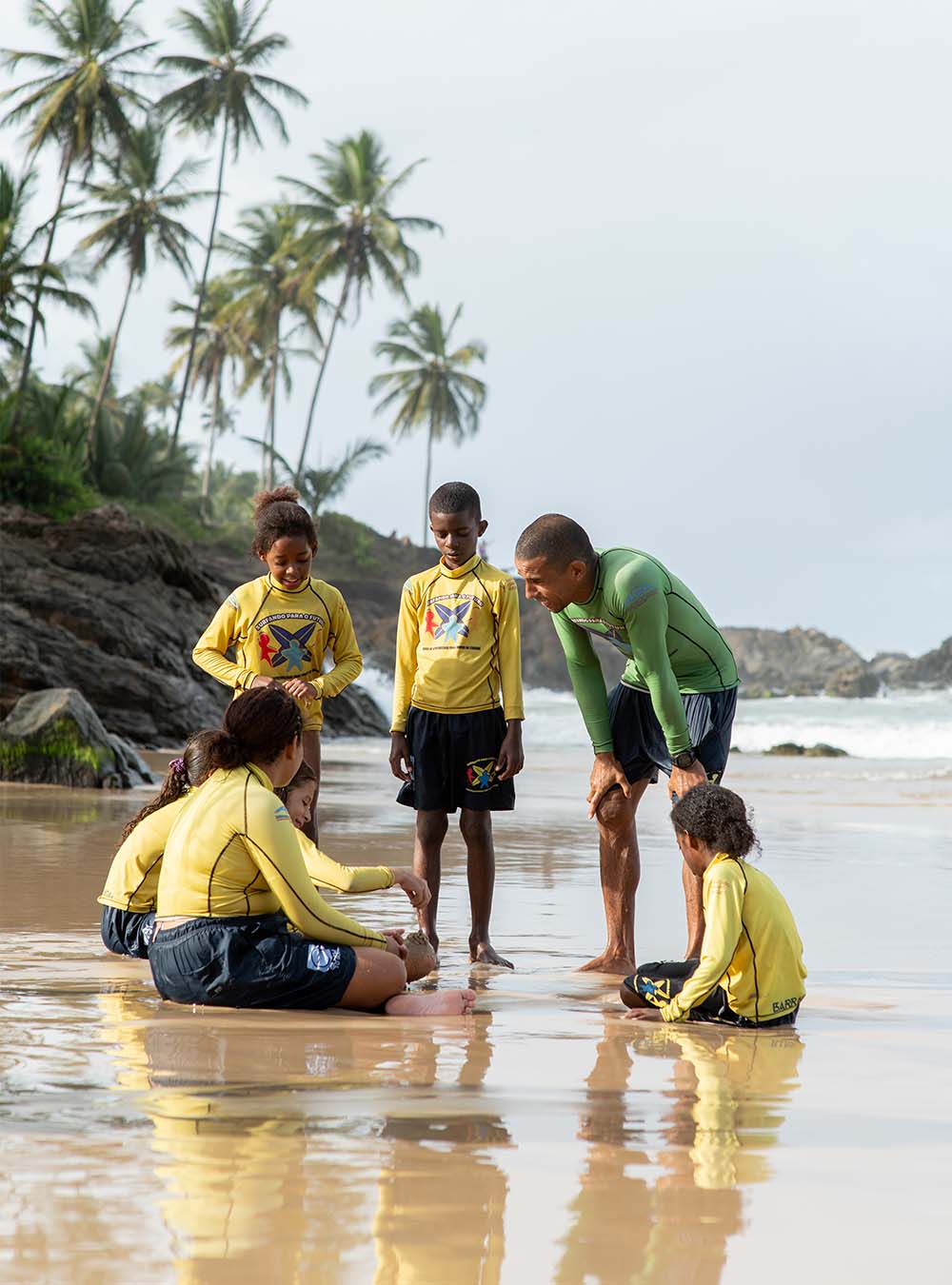
As president of the Barracuda-founded Instituto Yandê Itacaré, a non-profit association which promotes local entrepreneurial education and encourages community-based initiatives, Juliana is closely involved with ongoing social and environmental projects — including ‘Surfing for the Future’, an initiative run in partnership with Itacaré’s Surfing Association (ASI) which offers surfing lessons to under-privileged children. “You come here because of the nature, and you end up having a transformative experience because of the people,” says Juliana, who strives to keep everything hyper local so that guests can leave with local knowledge.
”You come here because of the nature, and you end up having a transformative experience because of the people.
Juliana Ghiotto
Manfredi Rizzuto, Susafa
Sicily, Italy
For the Rizzuto family, farm-to-table dining isn’t just a concept — “it’s a way of life.” Susafa is a lovingly converted Sicilian farmhouse that’s been in Rizzuto hands since 1868, and is now almost entirely self-sufficient in terms of energy production. “Our energy comes from the sun, our water from the land, our food from the grounds, and our staff from the region”, explains Manfredi, who feels a deep sense of responsibility to preserve his family home.
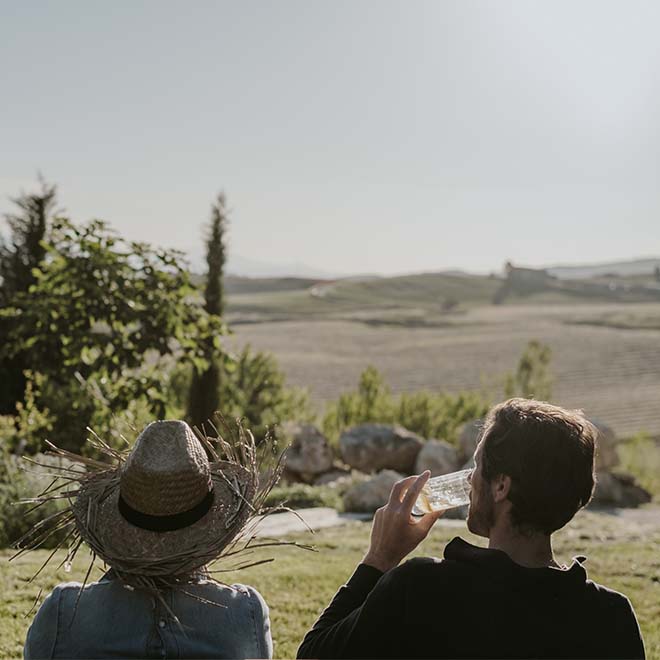
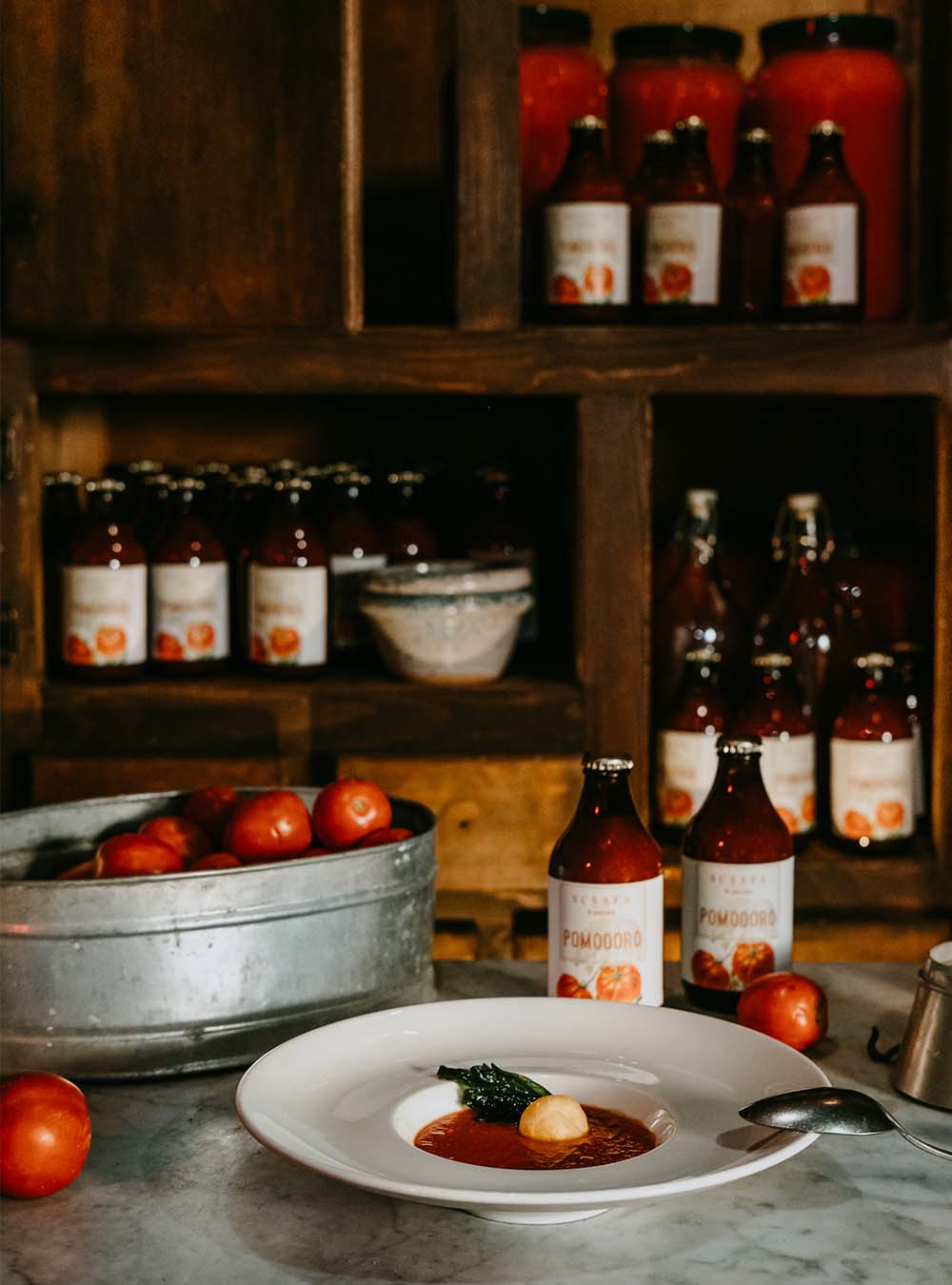
“At Susafa, the garden guides the kitchen."
At Susafa, “the garden guides the kitchen”, harvesting and pressing its own olives, picking cherries from the orchards to make jams, and gathering herbs to garnish cocktails and home-baked bread. Guests can become ‘modern farmers’ through the 200-year-old masseria’s ‘Let’s Sow the Future’ initiative by adopting a field or plant on the estate, observing crops in-person or via webcam before receiving the fruits of your harvest as flour, tomato purée, pasta, and other organic treats.
Christophe Mercier, Ca’ di Dio
Venice, Italy
Set in the heart of Venice, modern technology meets 13th-century architecture at Ca’ di Dio, a historic palazzo which draws water directly from the lagoon to power its heat exchanger and cooling system. Firmly believing that “sustainability can be done anywhere, everywhere — even in cities,” the hotel’s director Christophe Mercier hopes that their efforts in the Floating City might become an example to other heavily touristed urban destinations looking to take greener steps. “If we can do it in Venice, it can be done anywhere else in the world.”
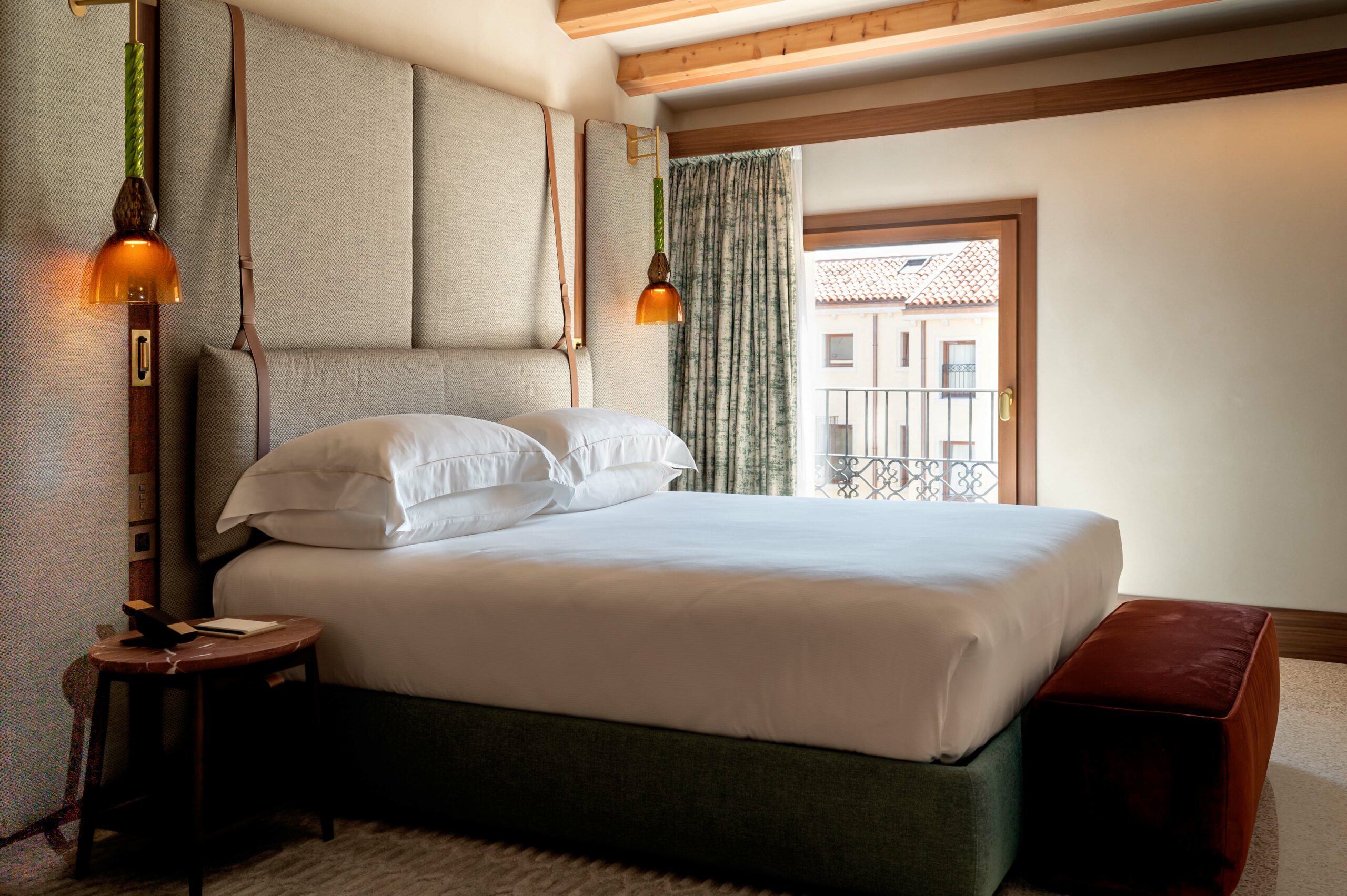
Some rooms overlook mimosa and magnolia trees in Ca’ di Dio’s peaceful courtyards — others, the lagoon and its fleets of passing gondolas which is best explored on board the hotel’s hybrid electrical water taxis. After an afternoon spent visiting local Murano glass makers — the very same artisans who hand-crafted the bespoke lamps throughout the Patricia Urquiola-designed interiors, enjoy a seasonal meal at VERO Restaurant, with herbs plucked from the hotel’s vegetable garden, meat from Montello, and wine from Tri-Veneto.
